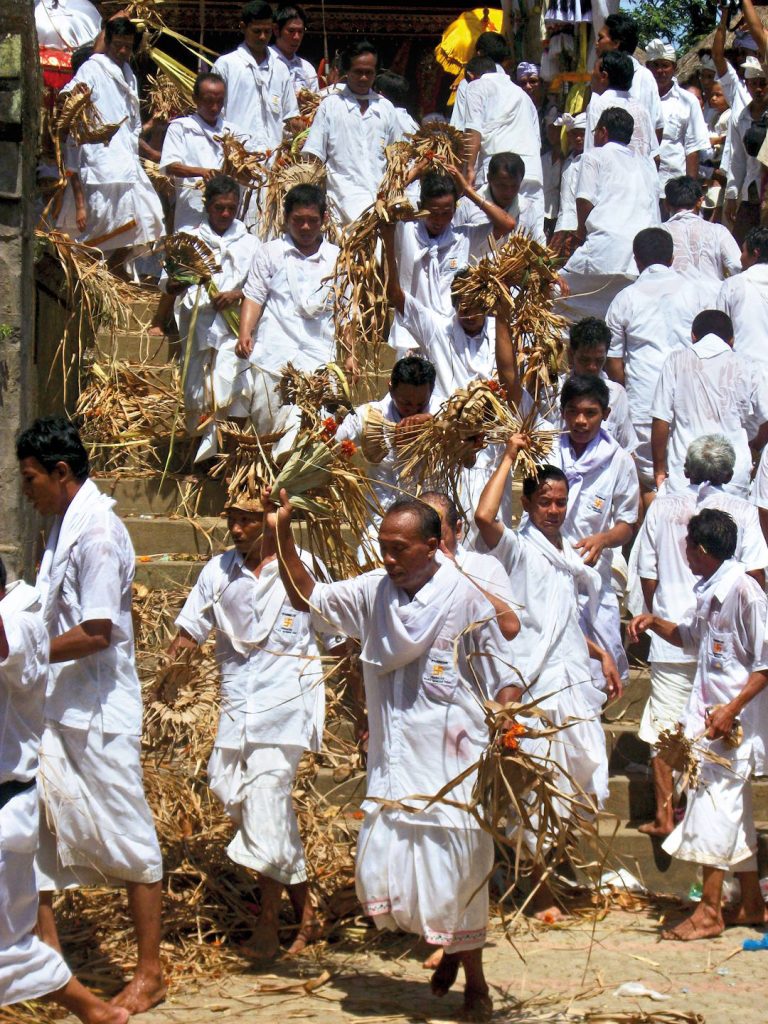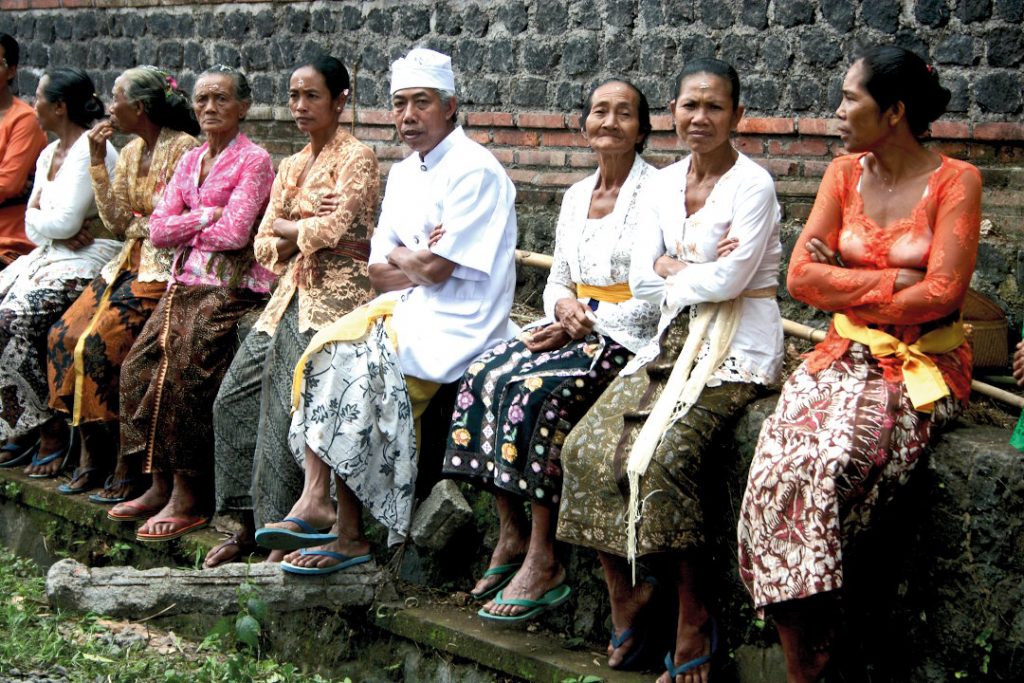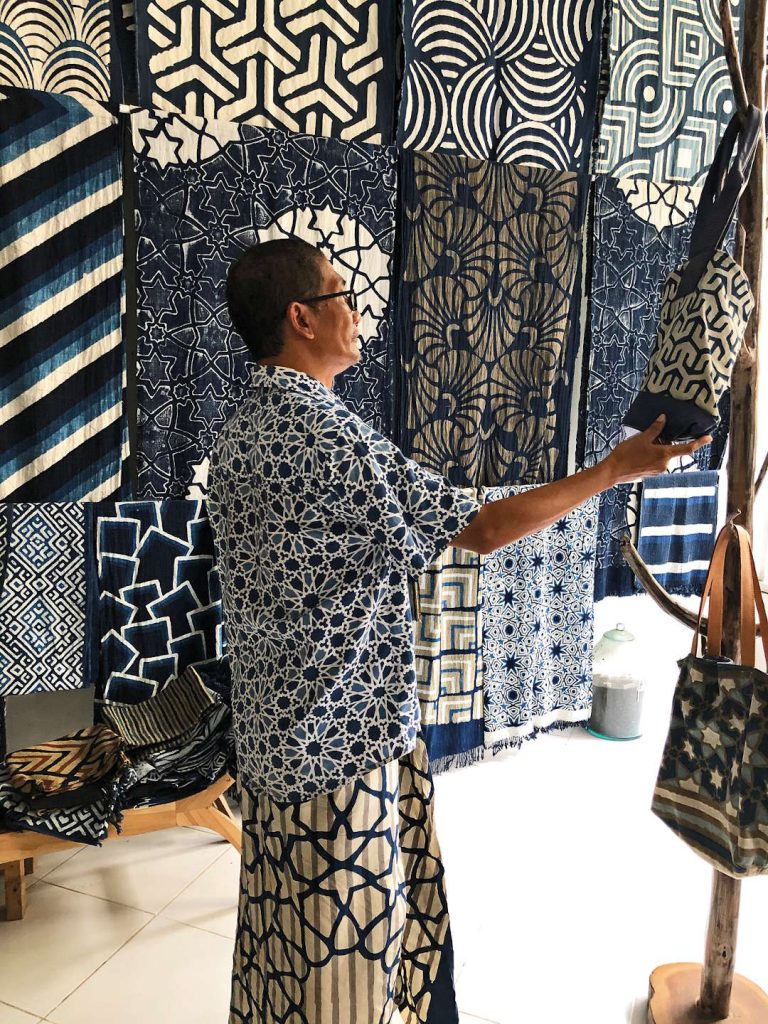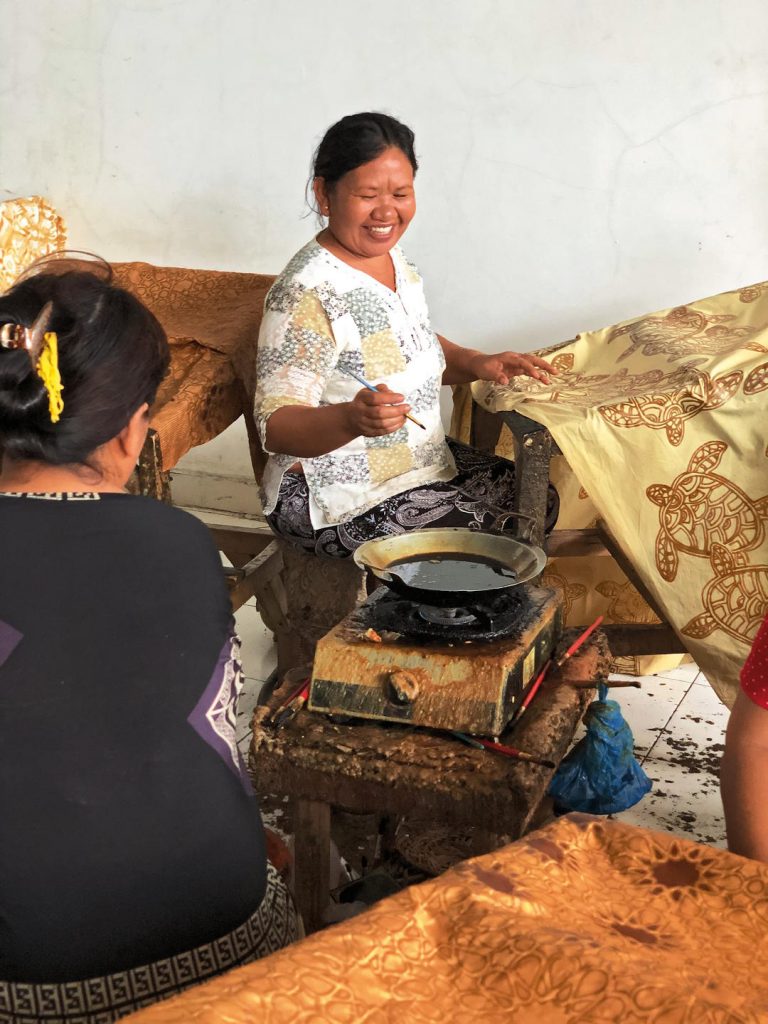Massive development has in many ways changed the landscape of Bali from being the home to an agricultural society to a now bustling tourism industry. The establishment of posh restaurants, luxury resorts, and glittering night clubs have led to many mistaking Bali as Indonesia’s capital of hedonism, not Hinduism. But if you look past the surface and dig deeper, Bali’s soul remains unchanged.

You may not notice it, but the Balinese are communal people. Even in popular hubs such as Kuta and Seminyak, where modernisation and mass tourism have taken over many aspects of one’s life, traditionalism is still devotedly practiced, where gotong royong or communal work is a big part of life, especially since many rituals and ceremonies require massive efforts.
A person must be actively involved in village meetings, play an instrument in the gamelan orchestra or dance in ceremonies. If a child in a family is having his or her tooth filed, the rest of the village’s women will help cook and prepare, and the men will help erect a stage and decorate the house. The same thing goes for other events, such as weddings, cremations, and practically many others.
Central to this communal life is the banjar, centre for village community organisation. In rural areas, away from tourist masses, a banjar is rarely empty. Here you’ll find the village youth practicing gamelan and traditional dances, or even children playing and mothers gossiping.

With that being said, the current uncontrollable tourist influx has concerned quite a number of village leaders for it has affected the ‘togetherness’ of the Balinese people, especially since tourism also promises ‘prosperity’.
Now that more and more hotels, restaurants, and other leisure centres are occupying Bali, a big number of young villagers have left their rural homes to test their luck and make a living in the island’s more popular areas. They set out to where the tourist dollars are, in the hope of returning home with some money to help with the family’s needs such as for ceremony offerings. But with a pay check comes professional responsibilities; and there were cases (and still are) when non-Balinese bosses don’t give permission for their Balinese Hindu staff members to return to their home villages for ceremonies because the said staff have taken too many ‘holidays’. Hence, the Balinese staff fail to perform their duties in their villages.
One village leader rises to the occasion. Tjokorda Agung Pemayun, leader of Pejeng village in Tampaksiring, feels the need to take measures to counteract the negative impact that modern expectations have on the Balinese people. “Tourism has redefined ‘Balinese hospitality’. Everyone now races for money, and this has affected life in the villages”, Pak Tjok, as he is addressed by the people in his village, explained.

Bali has its own calendar, filled with many auspicious days and nights. No opportunity is lost for the Balinese Hindus to worship God and pay homage to their ancestors. But investors have their own agenda. And this has created a conflict of interest, disturbing the harmonious balance in Bali as a big community.
“Tourism in Bali should be community-based. The Balinese as a group are genuinely hospitable people. But tourist dollars have changed their nature. Prices are going higher, the villagers are selling their land to buy a brand new Toyota Avanza or Innova to provide transport services – rice fields are thus abandoned. As a result, harvests are not enough to even support daily needs, the tourists refuse to use the services offered or even buy local produce because apparently prices are lower in their home countries”, Pak Tjok further commented.
It’s based on this fact that he established several businesses, including a local village bank, based in Pejeng. “I’m trying my best to provide for the villagers in Pejeng. The reason why I established several businesses here in my village is to create job opportunities. It’s not that much, but it helps make the villagers less dependant on tourism. Any profit made will be used to maintain our village organisation. This way, I hope everyone could function well in our community”.
One of the businesses set up by Pak Tjok is indigo dyeing cloth production. Quite a number of villagers (mostly women) are actively taking part in the production, while others farm the plants to produce the natural colours. “Again, the production of the indigo cloth may not be enough for the villagers to have luxurious lifestyle, but at least they can afford their basic needs without having to leave the village and seek opportunities elsewhere. This also means they can actively engage in our community,” he said.

Pak Tjok is currently on a mission to tighten the bonds among his villagers. The villagers at Pejeng will have more functions, meaning to do more communal work, such as to tackle one of the biggest issues Bali is currently facing: waste problem. “I’m setting up a special ‘troop’ to handle waste problem in Pejeng. We’re currently working on reducing the use of single-use plastics, and we’re trying to recycle, as well as utilising organic waste as compost,” Pak Tjok said, adding that he wishes his village to be clean.
“I have Danish friends who used to come to Bali every year; they don’t anymore now. They told me that Bali has become a dirty place, and the spirit of community is not strongly felt anymore. So I’m trying to remind the villagers in Pejeng to go back to Tri Hita Karana. We have to work together as a community to keep the taksu or spirit of Bali alive. Because that’s what makes Bali special.”







